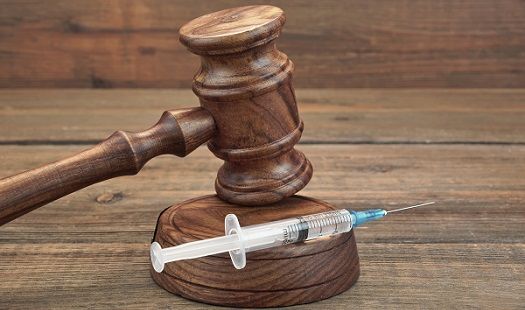Court Ruling on Glatiramer Acetate Patents Hurts Company, but May Help Patients
The multiple sclerosis drug may become cheaper with Teva’s loss of exclusivity.

Teva Pharmaceuticals took a major hit late yesterday when four of its claims of patent infringement for Copaxone, the successful multiple sclerosis (MS) drug, were struck down in court, leaving the company exposed to generic competition.
Copaxone is a 40mg injection of glatiramer acetate (GA), a drug delivered thrice weekly and thought to alter the immune processes that trigger MS relapses. Teva’s protections of the drug primarily revolved around the 40mg dose, as generic 20mg injections had already begun to nip at its numbers, which currently account for approximately a fifth of the company’s annual sales.
In August, several of Teva’s patents for the drug were invalidated by the United States Patent and Trade Office as a result of a challenge brought by Mylan. The patents were invalidated on the grounds that a dosage amount of a drug was not defensible by patent given that glatiramer acetate itself was not. GA consists of four amino acids found in myelin sheaths, the protective layers that coat nerves and that the immune system attacks in MS patients.
Sandoz, the joint property of Momenta and Novartis, had been producing a 20mg generic. Both Sandoz and Mylan are believed to be preparing applications for 40mg generic injections of the drug.
The decision has already had a sizable impact on Teva, with its stock dropping over 7% in the immediate aftermath. The company, itself the world’s largest producer of generic drugs, was recently forced to pay over half a billion dollars in fines to US regulators as punishment for an international bribing scandal, and along with many of the other major pharmaceutical firms, is resting under the Justice Department’s microscope for its drug pricing practices.
For MS patients, the court decision could be of great benefit. A very recent study of generic versions of the drug found them to be equally as safe and effective as Copaxone. Approved by the FDA in 1996, GA has been around long enough to demonstrate efficacy in decade-plus-long studies. A 10-year study published in 2013 found a decade of treatment with the drug “allows disease development to be controlled in many patients.” A study from 2010 found that “multiple sclerosis patients with mean disease duration of 22 years administering GA for up to 15 years had reduced relapse rates, and decreased disability progression” with no long-term safety issues.
The introduction of generics at the more potent and less frequent dose that Teva no longer holds the monopoly on could make the drug, widely seen as effective, much cheaper and more convenient for those with MS. Copaxone currently costs nearly $60,000 for a year’s worth of treatment.
Related Coverage:
Could "No Evidence of Disease" in MS become "Disease Free"?
MS Patients Much More Likely to Have Uveitis, According to Review